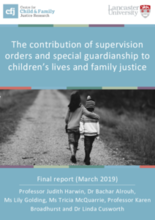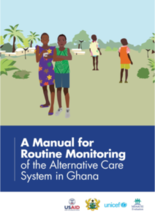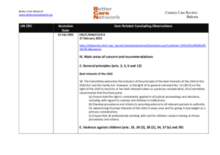Displaying 401 - 410 of 1796
This report is about the use of ‘family orders’ to support family reunification and placement with family and friends as outcomes of S31 care and supervision proceedings brought under the UK Children Act 1989. The over-arching aim of this study is to understand the opportunities, challenges and outcomes of these orders, and their use at national and regional level.
Using qualitative methods of data collection, factors influencing child placement in Southwestern Nigeria were examined in this article.
This study explores the qualitative responses of child welfare workers in Florida to understand their collaboration experiences, focusing specifically on their perceptions of facilitative factors of collaboration with Intimate partner violence (IPV) services.
The purpose of this manual is to provide guidance on how to collect and report data on children in formal alternative care in Ghana in a standardised way, and to analyse, present, and make the data available for use.
This tool provides practical suggestions and guidance to support your practice in communicating with children in court.
This country care review includes the care-related Concluding Observations adopted by the Committee on the Rights of Persons with Disabilities and the Committee on the Rights of the Child.
This country care review includes the care related Concluding Observations adopted by the Committee on the Rights of the Child as part of its examination of Guinea’s periodic report to the Convention on the Rights of the Child.
This country care review includes the care-related Concluding Observations adopted by the Committee on the Rights of Persons with Disabilities and the Committee on the Rights of the Child as part of the Committees' examinations of the initial State reports.
This country care review includes the care-related Concluding Observations adopted by the Committee on the Rights of the Child.
To ensure protection of children from institutional abuse, there is an urgent need to review the existing laws in terms of their efficacy to protect children and feasibility in implementation. The present study suggests possible solutions, by trying to understand standardized and effective models of care systems and mechanisms.







